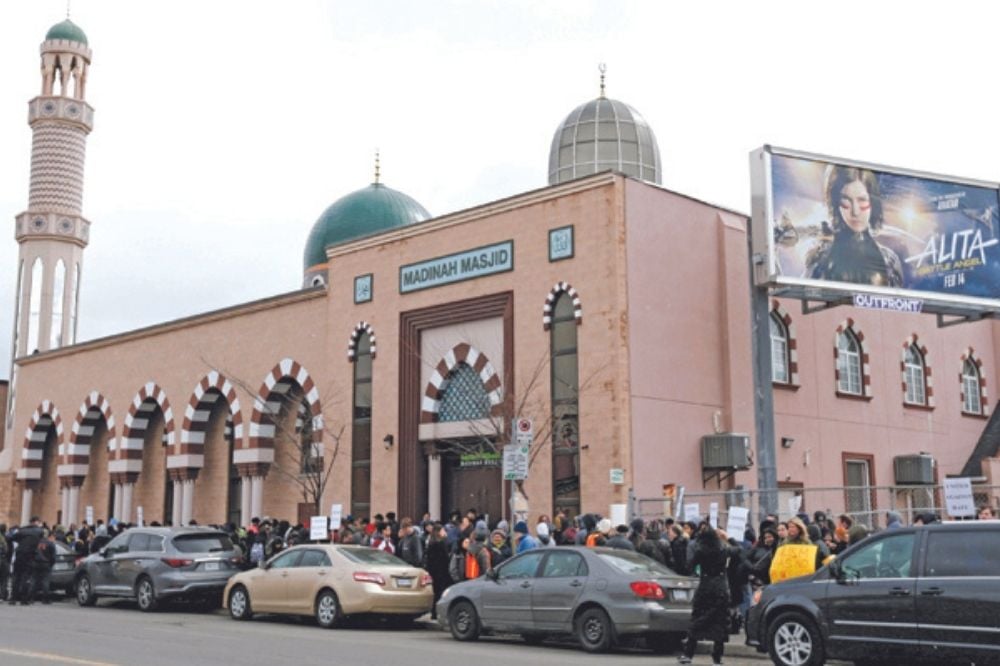
Equity and inclusion officer on the significance – spiritually and practically – of the holy month

The month of April marks Ramadan for Muslims around the world who will fast and reflect spiritually.
So, how can businesses make these workers feel welcome to practise their beliefs?
Mahrukh Ali Aziz Diversity, equity and inclusion coordinator at the Winnipeg Chamber of Commerce, recently provided some insights.
Q: What exactly is Ramadan?
A: “It is the holiest month in the Islamic calendar; it’s the ninth month in the Islamic lunar calendar so it’s based off the lunar cycle or the phases of the moon.
“Every year, the dates do change accordingly, so this year, it’s running from April 2 until May 2, and it lasts about 30 days and then we have a three-day celebration, which is called Eid-ul-Fitr.
“What happens during Ramadan is that Muslims who are able to fast are expected to and it is mandatory for them to fast… of course, there’s exceptions for that, which may be because of any chronic or acute illness, or if they’re breastfeeding or menstruating, or if they’re travelling.
“Muslims fast around the world from sunrise to sunset, abstaining from food and drink, that is the basic and main requirement; but going beyond that, it is to make sure that you abstain from lying, backbiting, or anything that would get in the way of you being patient and not showing any aggression.”
Q: Why is Ramadan so important for Muslims?
A: “Ramadan is the month in which the Quran, which is the holy book of Islam, was revealed to the Prophet Muhammad, peace be upon him, and this was around 610 A.D., and the revelation is believed to be in the last 10 nights of Ramadan, and they’re given special significance and consideration.
“They’re known as the Night of Power or Laylat al-Qadr. The timing of the revelation is the one that is given special importance to commemorate that and the revelation of the Quran, Muslim fast during the month of Ramadan.
“Fasting is also one of the five pillars of Islam. The theme at the end of the day is to grow spiritually and building a stronger relationship with God. There’s a lot of intense devotion to worship, to spiritual practice, to community building as well, being there for one another and also donations to charity.”
Many employers are not doing enough around diversity, according to one survey.
Q: How can Muslim employees be well supported?
A: “If you have self-identified Muslim colleagues, it is important to acknowledge the month of Ramadan when it’s coming up.
“The first thing is to communicate and to educate so as a leader in your organization, it’s best to send out an email informing the whole staff to be aware of the upcoming month, share greetings that are most commonly used such as ‘Ramadan Mubarak’ or ‘Ramadan Kareem.’
“One thing that is very important is that you provide inclusive flexibility. What that means is allow flexible working hours, check in with your staff, talk to them, and ask them what best fits their timings or if they prefer morning meetings or afternoon ones: it’s always best to ask them ahead and then schedule the meetings, and allow special exceptions for Muslim employees who are fasting.
“If they want to take some time to pray, especially if they’re on their shift and their break time doesn’t fall when they have to break their fast, give them that time slot to break their fast and to pray.”
Q: How should non-Muslim employees respond to Ramadan?
A: “The first thing would be having authentic conversations [and] also not be afraid to ask questions from your Muslim employees, obviously in a way that is welcoming but that really helps you to learn regarding their culture and also their religious practices.
“There are really good resources available online that can help to educate employees and staff in general in terms of understanding the importance this specific month holds… like Islamic Relief.
“It’s also important to take note of what is the timetable or the schedule looking like for Muslims during this month, what are their prayer timings? To have that printed out for your own and for your staff members, just so they can be mindful when they’re planning meetings, or even social hours. Things like that really help with workplace accommodations and having open conversations.
“[Also] provide holistic support. Even if some employees, they might not be fasting for personal reasons, they might still be observing the month in different ways. They might not be fasting due to some specific reason; it’s always best not to ask why someone is not fasting but ensure that you’re allowing the same workplace accommodations for them as you would for someone who is fasting. That’s… treating everyone fairly and equally because at the end of the day, you want to create an equitable workplace culture.
“When you’re planning social hours, or networking lunches during the month, perhaps avoid that and instead do something after sunset when Muslims break their fast.
“If you just use a simple greeting, like ‘Ramadan Mubarak’ with a smile, that goes a very long way for a fellow Muslim or even if you just sit down with them, and you ask them, ‘Hey, can you tell me a little bit about it? I’m curious to learn.’ That just makes them feel important and that makes them feel like ‘The person actually wants to learn about my religion or my culture, and why I’m doing what I’m doing during this month.’